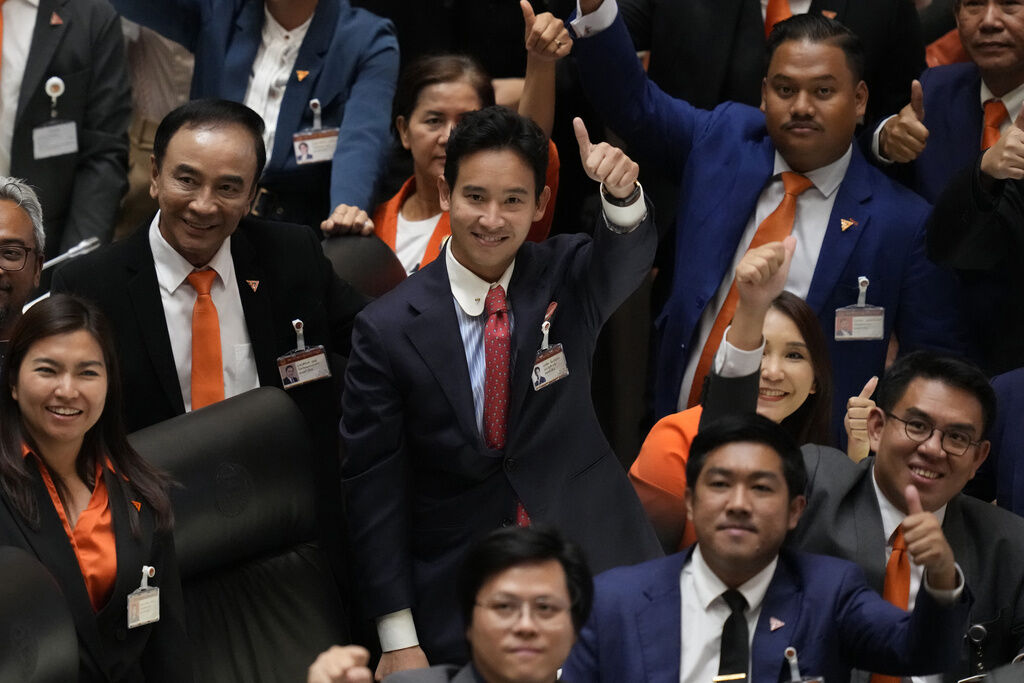Pheu Thai may replace MFP in Thai political shakeup

A shift in the political dynamic of Thailand might be on the horizon, according to predictions by a distinguished political science academic. He believes the Pheu Thai Party could rise as the new coalition’s head if Pita Limjaroenrat, the leader of the Move Forward Party (MFP), fails to secure victory in the Parliamentary selection for Thailand’s Prime Minister.
Burapha University’s political scientist, Olarn Thinbangtieo, shared these views with the Bangkok Post. He suggested that based on the House seat majority, Pheu Thai has ample justification to replace the MFP and potentially establish a new partnership. This coalition might include significant parties that currently aren’t part of the MFP-led alliance. Olarn said…
“All Pheu Thai has to do is wait and see what its best option is, its prime ministerial candidate or that of another party (that it will form a new political alliance with.)”
Olarn further opined that if Pita’s multiple bids for the prime minister’s position falter, Pheu Thai may need to evaluate their alliance. A strategic shift could involve forming a new alignment with parties like Bhumjaithai or Palang Pracharath. However, should Pheu Thai choose to stick with their existing political alliance and nominate their prime ministerial candidate, they could confront a potential deadlock in garnering sufficient votes from the Senate.
Regarding the chances of MFP’s proponents taking to the streets in response to Pita’s failure in Thursday’s vote, Olarn felt this possibility seemed remote. The reason is that Pita still has an opportunity to vie for the premier role.
In Olarn’s view, last Thursday’s debate before the members of Parliament and senators cast their votes for Pita, who was the exclusively nominated candidate for the prime ministerial selection, served little purpose. The voters had already seemingly fixed their decision, he noted.
This perspective was echoed by other political science academics, including Wanwichit Boonprong from Rangsit University, Stithorn Thananithichot of King Prajadhipok’s Institute, and Thanaporn Sriyakul of Kasetsart University. These scholars also suggest that senators who abstained or dissented during Thursday’s vote justified their actions on the MFP’s opposition to Section 112 of the Criminal Code, also known as the lese majeste law.
The academics believe that this law was the key reason behind their refusal to endorse Pita as the country’s new premier. With their fixed stance on Section 112 forming a substantial component of their election campaign, it seems that Pita and the MFP have little room for backtracking.






